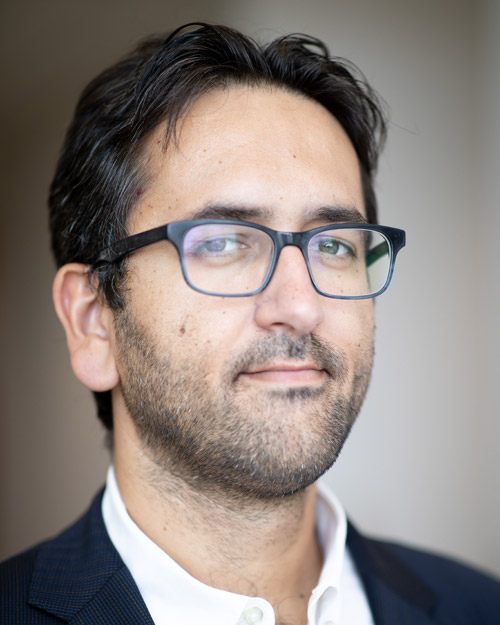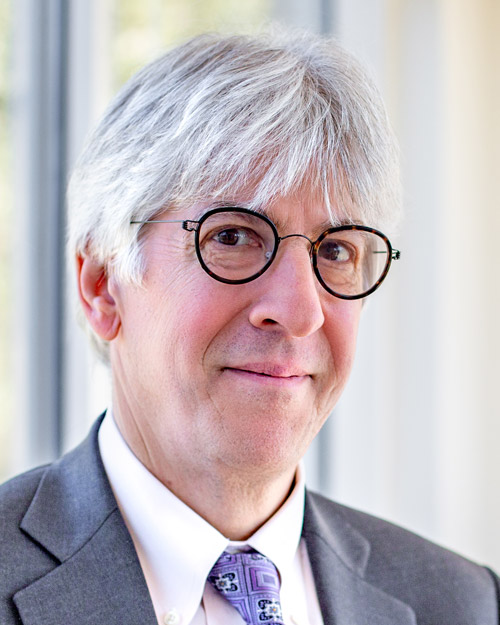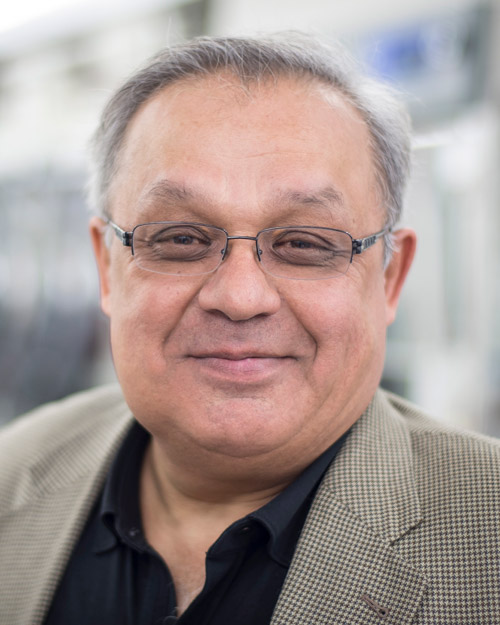Four University of Texas at Dallas faculty members have been elected 2020 fellows of the prestigious American Association for the Advancement of Science (AAAS).
Dr. Murat Kantarcioglu, professor of computer science in the Erik Jonsson School of Engineering and Computer Science; Dr. Steven Small, dean of the School of Behavioral and Brain Sciences; Dr. May Yuan, Ashbel Smith Professor of geospatial information sciences in the School of Economic, Political and Policy Sciences (EPPS); and Dr. Anvar Zakhidov, professor of physics in the School of Natural Sciences and Mathematics (NSM) are among 489 newly elected fellows selected for their contributions to science and technology.
Since 1874, AAAS fellows have been recognized for their extraordinary achievements and include scientists, engineers and innovators who have distinguished themselves across disciplines — from research, teaching and technology, to administration in academia, industry and government, to excellence in communicating and interpreting science to the public.
Dr. Murat Kantarcioglu

Kantarcioglu was selected for distinguished contributions to the field of secure and privacy-preserving data storage, querying and mining, and adversarial machine learning. His research focuses on creating technologies that can efficiently extract useful information from any data without sacrificing privacy or security. Recently, he has addressed blockchain software, sharing of pandemic-related patient data and secure use of videoconferencing software.
Kantarcioglu, who joined the UT Dallas faculty in 2005, has published more than 100 papers in peer-reviewed journals and conferences. His research has been supported by the National Science Foundation (NSF) — from which he received a Faculty Early Career Development award in 2009 — the Air Force Office of Scientific Research, the Office of Naval Research, the National Security Agency and the National Institutes of Health (NIH).
He is director of the UT Dallas Data Security and Privacy Lab, a distinguished scientist of Association for Computing Machinery and a senior member of the Institute of Electrical and Electronics Engineers.
“Over the years, I have worked on a broad range of collaborative research projects, aiming to ensure secure and privacy-preserving data storage, querying, sharing and analysis,” Kantarcioglu said. “As a computer scientist whose research agenda is at the interface of cybersecurity, machine learning and data science, I believe that addressing the emerging challenges in data privacy and security is impossible without transcending the conventional disciplinary boundaries and advancing new synergistic initiatives in data science. I am glad to see that my research contributions in data security and privacy are honored with this important recognition.”
Dr. Steven Small

Small, who is the Aage and Margareta Møller Distinguished Professor in Behavioral and Brain Sciences, was honored for his distinguished contributions to the neurobiology of language, particularly in brain imaging of speech and language, and for founding the Society for the Neurobiology of Language and its journal.
Small, who joined UT Dallas in 2019, has conducted extensive research on the neurobiology of language and motor skills and how these are affected by stroke. His areas of expertise range from language processing and computational neuroscience to neuroimaging. He served as editor-in-chief of the journal Brain and Language from 2005 to 2019. He is a fellow of the American Academy of Neurology and the American Neurological Association.
“I am honored to be joining Drs. Mick Rugg [director of the Center for Vital Longevity (CVL)] and Denise Park [CVL director of research] as the third AAAS fellow in the School of Behavioral and Brain Sciences at UT Dallas,” Small said. “The AAAS plays a vital role in our society in promoting science and its relevance to understanding and combating the pressing problems of our era, such as public health and climate change, and advocating for science education at all levels with attention to equity and inclusion.”
Dr. May Yuan

Yuan was elected for her contributions to fundamental and applied geographic information science (GIS), especially for developing new data models and analytical methods to address problems of significant societal concerns.
“I am honored to receive the recognition and become a fellow of AAAS,” Yuan said. “As we are facing many big challenges of our time, science is more important than ever to provide evidence-based information for decision-making. I am delighted to be a force for science.”
Yuan’s research spans fundamental and applied GIS by developing new data models and analysis to find direct social implications for policymaking in everyday life. Her recent work expands to spatial data analytics and event-location modeling.
Yuan joined EPPS in 2014. She serves as the chief editor for the International Journal of Geographical Information Science. Her research has been supported by the NSF, NIH, NASA, National Oceanic and Atmospheric Administration, U.S. Geological Survey, and the U.S. departments of Defense, Homeland Security, Justice and Energy.
Dr. Anvar Zakhidov

Zakhidov was honored for creative, pioneering contributions to the design, processing and understanding of functional nanomaterials, including carbon nanotubes, fullerenes and perovskites. An internationally recognized researcher, he is known for his landmark advancements in nanotechnology, photonics and the physics of solar-energy devices, including contributing to breakthroughs in fabricating carbon nanotube yarns and transparent nanotube sheets.
Zakhidov joined UT Dallas in 2001 to co-found the Alan G. MacDiarmid NanoTech Institute, where he is the associate director. In addition to his faculty appointment at UT Dallas, he is head of the Laboratory of Hybrid Nanophotonics and Optoelectronics at ITMO University, a major state university in St. Petersburg and one of Russia’s national research universities.
Zakhidov is a fellow of the American Physical Society and a foreign member of the Russian Academy of Natural Sciences.
“To be honored as a AAAS fellow gives me additional drive to contribute more to the flourishing science at UT Dallas,” Zakhidov said. “There are many exciting research areas that I plan to explore, including hybrid perovskites and room temperature superconductivity and its potential use in medical applications. This is also a great occasion to thank all my graduate students and funding agencies, with whom we shared exciting research and discoveries over the last 20 years.”
About AAAS
Founded in 1848, the American Association for the Advancement of Science is the world’s largest general scientific society. Its mission includes advancing science, engineering and innovation, and serving society through initiatives in science policy, international programs, science education and public engagement. It also publishes the journal Science, which has the largest paid circulation of any peer-reviewed general science journal.